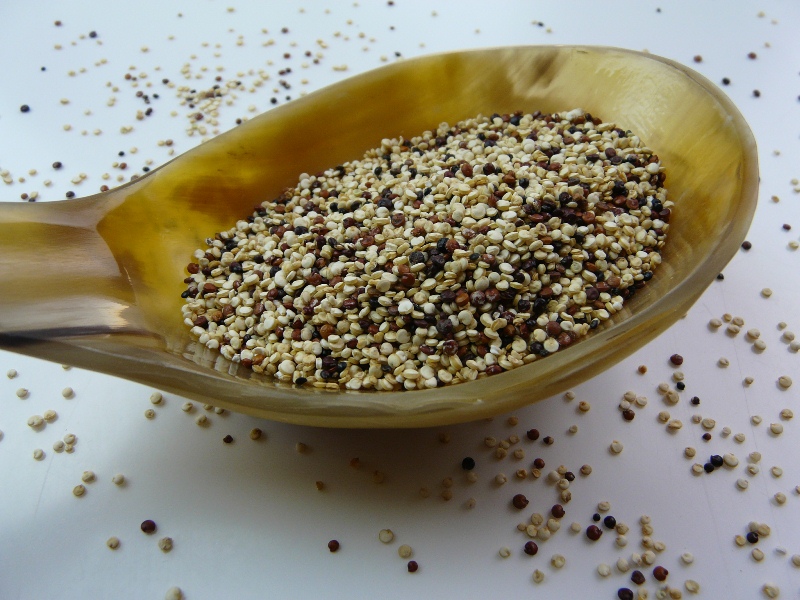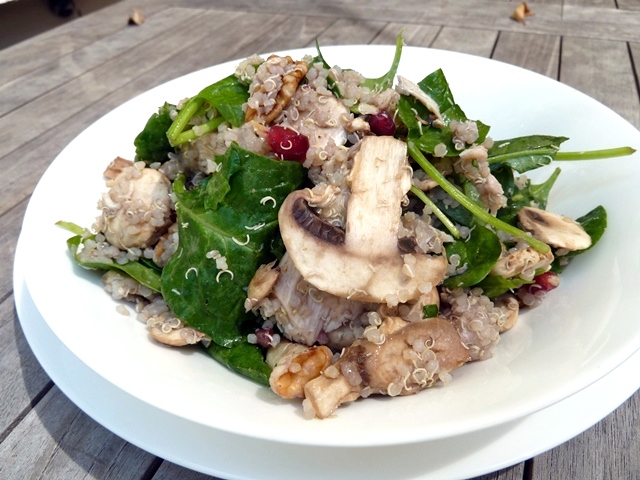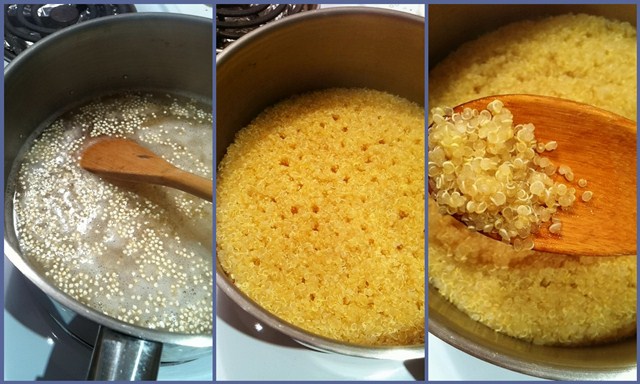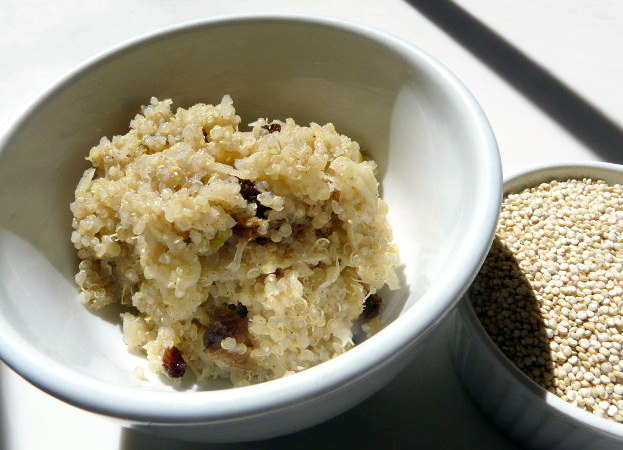Super food - quinoa examined

An ancient grain now revived. Quinoa is the latest grain to make the transition from alternative health food to trendy supermarket item. It’s an ancient grain from South America and has been a staple food for the Inca civilization for thousands of years. So how good is it really?
Quinoa is pronounced ‘keen-wah’ but don’t worry if you’ve been called it ‘queen-o-ah’. I hear lots of variations and it IS a strange-looking word!
The word itself means “mother seed” which immediately suggested to me that this was a pretty important player in the ancient food supply.
Traditionally it grows in cold climates and high altitudes in Peru, Bolivia and Chile. There are now trials growing it in WA and Tasmania to produce an Australian supply but this will take a few years to appear in the market. So popular has it become in recent years, that there’s scarcely enough quinoa left in these poorer countries to feed the locals. Their valuable crop is all being exported to Western countries where it commands a good price.
White quinoa is most popular and looks much like couscous in size and colour. Red, grey and black varieties are also available but the white variety is most common and the one you’ll see at most supermarkets usually in the health food section. It's the only grain to have a whole year named in its honour - 2013 was designated a "Year of quinoa" by the United Nations.

Nutrition claim to fame
Quinoa’s nutrition creds sound almost ‘too good to be true’. And when I first heard about it, that was my reaction. But having compared quinoa to couscous, barley and bulgur (cracked wheat), I can see that the nutrition is all there.

Check this list out:
- Protein - it has double the protein of most grains.
- Fibre – impressive, contains about three times the fibre of brown rice.
- Iron – it’s rich in this key mineral that’s needed for healthy blood, which is unusual for grains.
- Low GI - at 53, it’s near the max for slow carbs which makes it slow absorbing and good for anyone with diabetes. But this is much better than couscous (65) or brown rice (59 to 87) or polenta (68).
- Gluten-free - it’s ideal for anyone with a wheat intolerance or coeliac disease. It cooks up to be an interesting pleasant alternative to couscous or pearl barley.
- Low fat – 2 to 3 per cent like most grains.
- Excellent source of minerals (magnesium, manganese, copper, phosphorus, potassium, zinc) and vitamins (vitamin E and B-complex vitamins).
- Almost no salt.
- Good news for vegetarians and vegans - it is a complete protein source so you know you are getting all of your essential amino acids which are usually only found in animal products like eggs, milk or meat.
The reason it stands out above the other grains is that botanically it’s related to the spinach, silverbeet and beetroot plants. It’s not technically a cereal grain (Graminaceae) so it has a vastly different profile than wheat, oats, barley and other cereal grains.
Nutrition stats
Per serve uncooked or raw
¼ cup (45 grams) supplies 695 kilojoules (166 Calories), 6 g protein, 3 g fat, 29 g carbohydrate, 3 g fibre and negligible sodium.
Per 100 grams uncooked or raw
1540 kilojoules (368 Calories), 14 g protein, 6 g fat, 64 g carbohydrate, 7 g fibre and 2mg sodium.
How to cook
Quinoa is simple to cook. All you do is rinse, bring to the boil and then simmer. Use the usual grain ratio of 1 part of quinoa to 2 parts of water. My first attempt cooked in 15 minutes, one third of the time it takes to cook brown rice.

In a saucepan, bring bring 2 cups of water to the water, spinkle in 1 cup of the dry quinoa and reduce the heat to a simmer. With the lid off, cook gently for 12-15 minutes or until those little "steam tunnels" form (see picture above). Cover, remove from heat and leave to sit for 5 minutes so the grain is soft and cooked through. Fork through and it stays separate and fluffy.
 You can make quinoa into savoury or sweet dishes, so it’s quite the versatile staple to have on hand. I love it cooked in stock and turned into a hearty salad with red onion, baby spinach or rocket leaves, pomegranate seeds, large lentils, walnuts for crunch and mushrooms. Maybe a few crumbles of feta. See my effort above.
You can make quinoa into savoury or sweet dishes, so it’s quite the versatile staple to have on hand. I love it cooked in stock and turned into a hearty salad with red onion, baby spinach or rocket leaves, pomegranate seeds, large lentils, walnuts for crunch and mushrooms. Maybe a few crumbles of feta. See my effort above.
I also tried out the recipe on the quinoa pack and cooked up a pot of breakfast quinoa with grated fresh apple, sultanas and cinnamon. Nice but needed a twirl of honey. See picture.
Taste?
It’s a cross between couscous and brown rice in flavour but a lot less ‘nutty’ so you’ll need to boost the flavour with vegetables, fresh herbs, onion and garlic.
Note the round white "ring" around each grain which is characteristic of quinoa. I've read that the ring is the nutritious germ (as in 'wheatgerm' which is the germ of wheat) which detaches from the rest of grain during cooking.
The bottom line
Boosted with the vitamins and goodness, quinoa makes for an easy, filling, and nutritionally impressive dish. One to keep in the cupboard. Use it in place of couscous or white rice.







